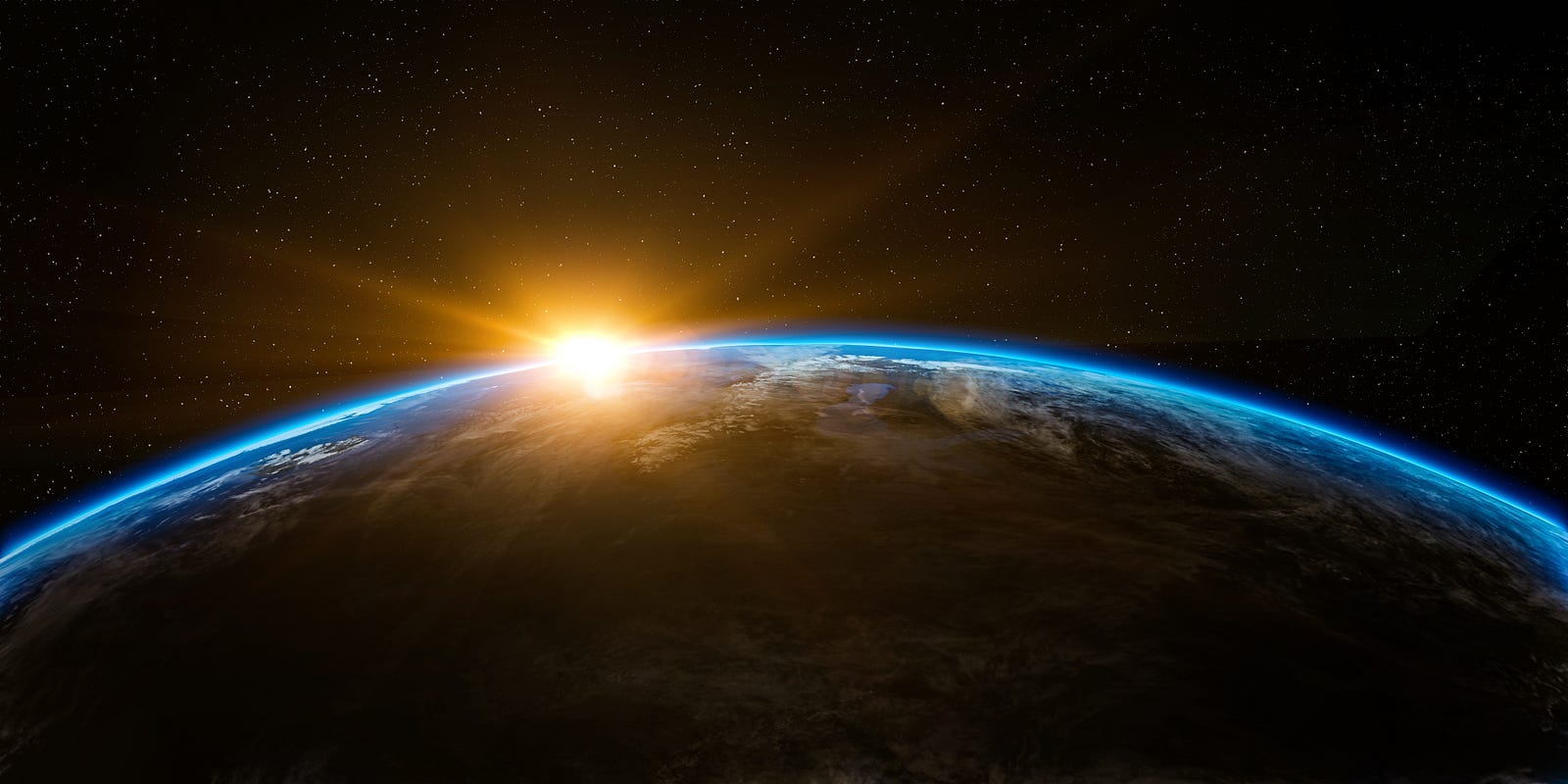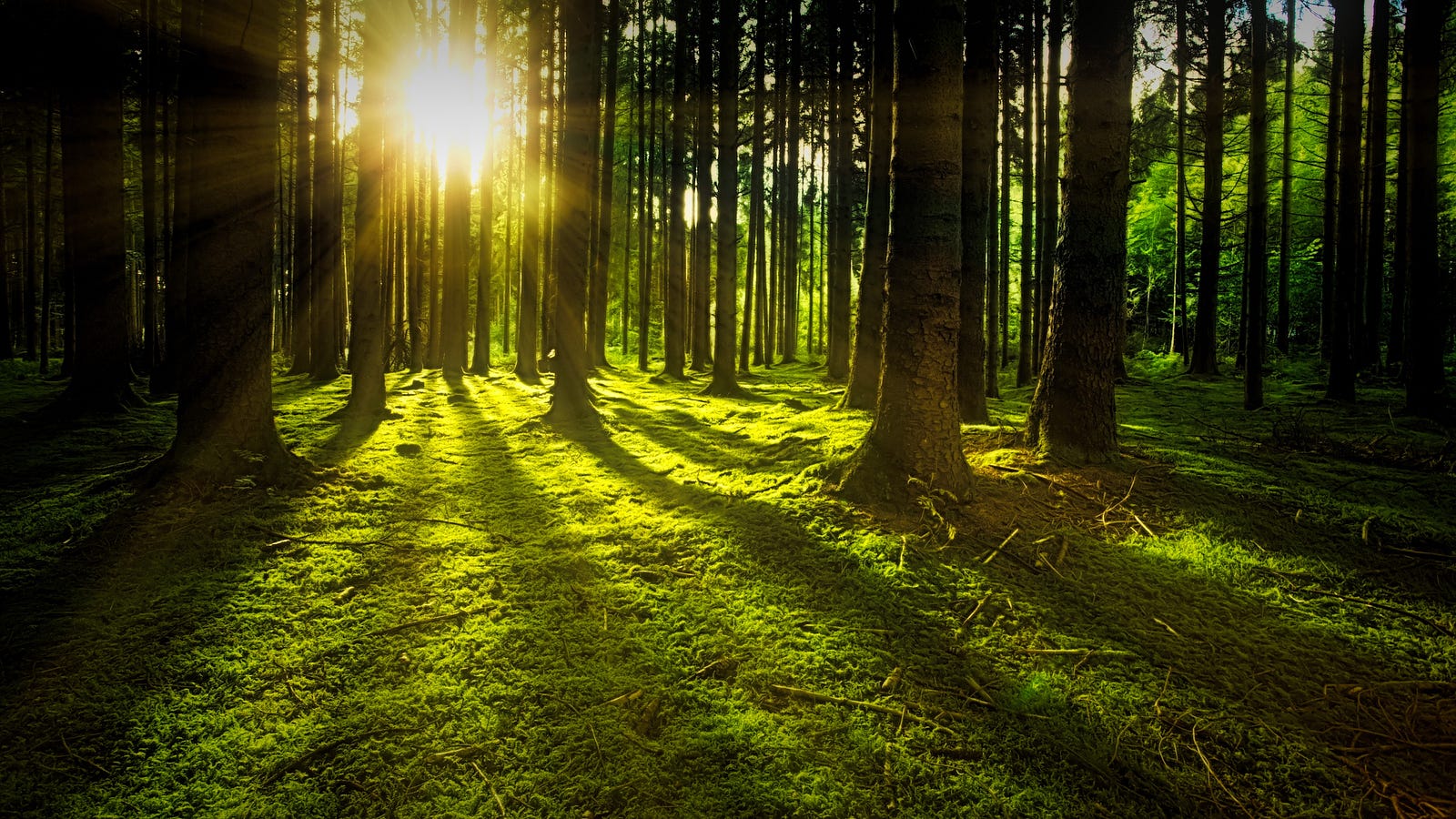
Bergson, Deleuze and time as duration: the possibilities for radical freedom in a universe alive with creativity.
To grasp meaning in our lives, and enjoy that meaning, we require a new sense of time.
Time is our most precious commodity. But our common understanding of time, scientific time, marches forward with or without us, and runs us down in the process.
We require a theory of time that accounts for our most important moments in life: life changing moments, when common time stands still, becomes irrelevant.
Armed with a new sense of time, we can immerse in the pure bliss of life, and access the force of creativity and love that we know intuitively is the stuff of which we are made.
Time as Duration
An immanent philosophy of difference, as put forward by Gilles Deleuze, is a process philosophy, a temporal philosophy. It requires a revitalized theory of time. For this, Deleuze turned to the French philosopher, Henri Bergson.
Bergson’s life work was in response to a rejection of what he considered an overly mechanistic view of the universe and human life, as articulated by Immanuel Kant and his theory of space-time causality. According to this view, all phenomena in space and time have a natural cause and therefore all things in existence within space and time are determined. Kant could only account for freewill and creativity by resort to God and faith, which he considered beyond space and time.
Bergson’s vision is of a universe informed by creativity and the new. He considers novelty in the universe and human life to be the direct result of pure undetermined creativity. In order to arrive at this conclusion, his starting point is a departure from the Enlightenment conception of time.
Through his concept of duration, Bergson challenges the scientific conception of time and replaces it with an metaphysical notion of time consistent with experience and unpredictability:
The more we study the nature of time, the more we shall comprehend that duration means invention, the creation of forms, the continual elaboration of the new. — Henri Bergson, Creative Evolution
The Straight Line of Time
Bergson begins with an analysis of the contrast between the ideas of space and movement. Space is measurable, discrete, divisible; whereas movement is indivisible, a continuous duration. Science places movement within space and in so doing can see it only in terms of a succession of positions, a succession of moments in time.
Science takes the ancient circularity of time (days, seasons, cycles) and flattens it out into a straight line, divisible into discrete moments that are measurable and equal; immobile cuts that sacrifice duration to the notion of uniform time. The eternal, creativity, and difference, are removed from scientific time.
For Bergson, movement can be viewed as a process, open, indivisible, a continuation.
Duration captures the possibility for the new, the created, the freedom in between moments that does not appear on the measured out straight line of time.
Duration is what changes in between moments, the creativity in the universe that is lost under scientific time. Duration is transformation, a continuous change in the whole. Duration is what changes and never ceases to change.
The straight line notion of time is transcendent of Being. It stands outside of Being and measures it independently. It is an immutable, independent variable. On the other hand, duration is immanent to Being. It is the temporal nature of Being, the temporal substance of Being, contained in all of its expressions or modes. Expression is a process internal to duration.

Reality as a Temporal Process
Bergson’s concept of duration is not psychological, it is metaphysical. It is not the memory of the past that exists in the present. Duration doesn’t move from the present back to a recollection of the past. It moves in the opposite direction: the past moves into the present. It is the metaphysical past, all past, the totality of all that has ever been, that is contained in the present.
The term Bergson and Deleuze apply to this past is “virtuality.” The past is a force or process of change that is present in all that exists.
The virtual is a process of internal difference. Substance is process, is duration. The virtual is the process of substance expressing itself in modes. The virtual is real, it remains in the present, is within actuality, informs actuality, spills over and overflows from actuality.
The virtual is more than the actual, not less. The virtual is difference itself, a force, a power of creativity, the unseen nature of novelty, the open whole that continues to change, differ with itself.
Duration as Creativity
Duration is the force of the present as it passes into the totality of the past, and the past as pure difference rolling forward into a continually changing present. And its ever-changing nature provides for transformation: complete freedom in between the moments superficially captured by the straight line of time.
Anything can happen under duration, there is no causality, no deterministic universe, only pure, immanent creativity. The present is radically free when it is viewed as a continuation of a past that is pure difference, and not covered over in artificial layers of causality.
For Deleuze, duration is a qualitative multiplicity, a heterogeneous series that cannot be ordered on to a straight line. A quantitative multiplicity can be measured uniformly as a series of moments. Duration as a qualitative multiplicity changes unpredictably, transforms without causation, creates unexpectedly, unravels unforeseen possibilities, is a truly genetic process.
Duration is the creation of the new, internal to the universe and life itself: a work of art, a symphony of difference, an expression of the vitality of the animated.
Duration does not transcend experience, it is pure immanent experience, the camouflage of abstraction and identity removed.

Intuition
Pure creativity cannot be grasped by the immobility and static nature of contemplated, reasoned, analytic concepts, but is known best through intuition. Intuition is “pure empiricism.” Intuition enables us to experience the flow of time.
Intuition enables us to experience the pure temporality of our conscious states and puts us directly in touch with the temporal nature of the universe. Only intuition can grasp the One in the Many.
Being is One, but it folds, unfolds and refolds into the Many in a process of qualitative multiplicity.
On a scientific understanding of time, movement from one moment is dependent on a constricted view of the prior, pure quantitative series. Pure causality, zero freedom.
For Deleuze, moments in time are independent of one another, qualitatively different, not under the control of the auspices of science, not a concept of time standing outside of the universe, but fundamentally the reality of the universe: pure change, pure creativity.
The Radical Freedom of the Present Moment
We cannot conceive of the absolute freedom of the present moment when our view of time has been reduced to a hollow version of itself, devoid of the one thing time consists in: change. We become enslaved to scientific time, forced to conform to the transcendent authority of determinism.
Scientific time is only one perspective on the universe, helpful for erecting buildings and building rockets. But to view scientific time as the totality of reality devours life, creativity, evolution. Scientific time covers over the spontaneity of time as difference-in-itself.
Only if we can clear away our attachment to scientific time and come to view our own existence in terms of a collection of heterogeneous moments of internal difference, are we empowered to create with the universe:
To view our lives as the unfolding of duration, wild and free.
The substance of the universe is time as duration, and it is full with creativity, overflowing continually, and beyond a simplistic and superficial concept of time. The present moment is pure freedom, informed by the process of pure difference of the past.
There is no causality here, only the absolute unknown of the next actuality as it becomes in the next present moment, and the absolute certainty of the force of pure change rolling forward.
We can and do participate in and create reality. We have the means within us, the intuition, to connect with the virtual as we transform our own experienced actualities.
Provided we are willing to see through the static abstraction of transcendent, ordered time, and connect with the raw, chaotic dynamism of the immanent new, we can experience the same freedom that informs everything in our environment. We can create with the universe.
…
Thanks for reading!
Tomas
Please join my email list below.
Excerpt from my forthcoming book, Becoming: A Life of Pure Difference (Gilles Deleuze and the Philosophy of the New) Copyright © 2021 by Tomas Byrne.

Leave a Reply